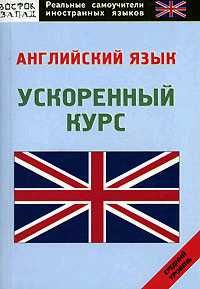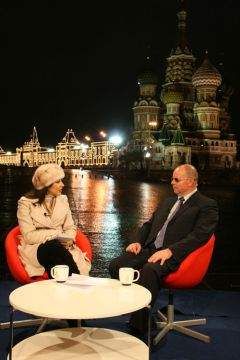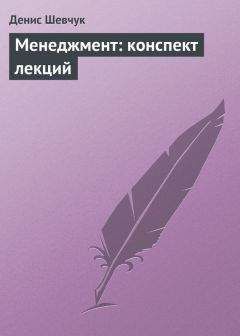2. Ask questions and give negative answers
Поставьте предложения в вопросительную и отрицательную формы
3. Make up the sentences of your own using the Passive structures. Use the verbs given (their third form). Check the Irregular forms.
Составьте свои собственные страдательные предложения. Используйте данные глаголы (их третью форму). Проверьте правильность написания форм неправильных глаголов.
4. Answer the questions.
Ответьте на вопросы.
1. What is your watch made of?
2. When was your computer switched on?
3. What clothes were worn by you yesterday?
4. What is made of wood?
5. How much water was drunk by you yesterday?
6. What is usually eaten for breakfast in your family?
7. What were you given for your last birthday?
8. What vegetables are grown by your parents?
9. How many letters will be written by you tomorrow?
10. Who is your equipment repaired by?
5. Give the following sentences in English.
Переведите следующие предложения.
1. Отопление не было включено вчера.
…………………………………………………………………………………
2. Когда отправят этот факс?
…………………………………………………………………………………
3. Эта мышеловка сделана из стали.
…………………………………………………………………………………
4. Его почту не забрали из офиса.
…………………………………………………………………………………
5. Ваш билет был куплен вчера.
…………………………………………………………………………………
6. Оборудование привезли на прошлой неделе.
…………………………………………………………………………………
7. Картофель не хранят дома.
…………………………………………………………………………………
8. Номер будет зарезервирован на следующей неделе.
…………………………………………………………………………………
9. Куда будет послана моя брошюра?
…………………………………………………………………………………
10. Газонокосилку не починили на прошлой неделе.
…………………………………………………………………………………
Language focus 2
Modal verbs
Модальные глаголы
6. Complete the sentences.
Дополните предложения.
Should the clients………………………………………….?
We are to……………………………………………………
They will have to……………………………………………
Did you have to…………………………………………….?
They were to………………………………………………..
May I………………………………………………………?
You shouldn’t………………………………………………
They won’t be able to………………………………………
Could you………………………………………………….?
You ought to……………………………………………….
Is he to……………………………………………………..?
He had to……………………………………………………
We didn’t have to…………………………………………..
Will they have to…………………………………………..?
You mustn’t………………………………………………..
7. There is one mistake in each sentence. Find and correct it.
Найдите ошибку в каждом из данных предложений.
8. Answer the questions.
Ответьте на вопросы.
1. When do we have to turn down the lights?
2. Should you store potatoes on the top floor?
3. Why should you set the alarm clock?
4. Will you have to use the bedside lights?
5. When are you to order new machinery?
6. What home equipment mustn’t your children use?
7. What will you have to do with a hole in the roof?
8. Why did you have to buy a new coffee pot?
9. Will you have to use flash memory tomorrow?
10. What hotel rooms shouldn’t you book?
11. When will you be able to learn to cook?
12. Could you move freely in the flow of traffic?
9. Translate the sentences.
Переведите предложения.
READINGAND SPEAKING PRACTICE
1. Answer the questions.
Ответьте на вопросы.
1. What home equipment do you use most often?
2. How does a mousetrap work?
3. Which things in your flat are rectangular?
4. Which things in your office work on electricity?
5. Is there anything wrong with your office equipment?
6. What is wrong with the home equipment?
7. How can you book a hotel room?
8. In which hotel did you last stay? Was it comfortable?
9. Which type of accommodation do you prefer: bed and breakfast, full board, all inclusive? Why?
10. What equipment do you normally find in a hotel?
2. Read these sentences. Underline the words from the Active Vocabulary. Close your eyes. How many sentences can you recollect?
Прочитайте предложения и подчеркните новые слова урока. Закройте глаза и постарайтесь вспомнить как можно больше из данных предложений.
1. Put these things into the middle drawer next to the coffee maker.
2. Don’t forget to switch off the lights.
3. To take a photograph you should press the button on the right.
4. I’ll have to turn down the central heating.
5. How does this fax machine work?
6. There is a thermostat here on the wall.
7. The grain will be stored on the top floor.
8. The mill is powered by this device.
9. What things are made from wood?
10. The hotel room wasn’t comfortable enough.
3. Read the dialogues and try to learn them.
Прочитайтедиалогиипостарайтесьихзапомнить.
I
Karl: Thank you very much for your help. I also want to give you these brochures for the meeting tomorrow morning.
Julia: Thank you.
Karl: And I have a present for you.
Julia: A present? For me?
Karl: Yes. Here it is.
Julia: What’s this?
Karl: It’s a CD player. It has a radio, too.
Julia: Thank you, Carl. And how does it work.
Karl: Look there is a switch. It has two positions: one for the player, and one for the radio.
Julia: Oh, I’ve got it. And where do these headphones go?
Karl: Here.
Julia: I see.
Karl: And I want to give you this CD about German cookery. Perhaps, you’ll like it.
Julia: Thank you, Carl.
II
Rachel: Rita, could you help me? I don’t know how this fax machine works.
Rita: It’s easy. I’ll show you. First, put the letter in here. Like this. OK?
Rachel: Yes.
Rita: Next, press this button, the button with «TEL».
Rachel: Does it stand for «telephone»?
Rita: Yes. Then, type in the fax number. What is it?
Rachel: 0279450767.
Rita: The, wait for the message «on line». Here.
Rachel: Yes.
Rita: And that’s it. Got it?
Rachel: I think so. May I try now?
Rita: Sure.
4. Make up a dialogue putting the sentences in the right order.
Составьте диалог, расположив предложения в логическом порядке. Инсценируйте диалог.
Carl in the hotel
7. Read this text.
Прочитайте текст.
A flour mill
Mildred Cookson works as a miller at an old water mill on the Thames. This water mill was built two centuries ago, but it is still working. Here, the grain is turned into flour. And flour is used to make bread and cakes.
Mildred is telling us how the mill works.
The water mill is actually powered by this water wheel here. The river water flows and turns the wheel. The water wheel in turns moves all the machinery inside the mill.
The grain is brought to the mill in sacks. Mildred has to get it up from the ground floor up into the roof. So, the grain is stored on the roof.
Then, when the water wheel starts up, the grain flows down from the top floor to the stone floor. On the stone floor there are millstones, and the grain flows into the millstones.
The set of millstones without the covering on involves the top stone that goes round and the bottom stone that doesn’t move. The grain goes into the middle of the millstones, in between the top and the bottom ones. It is turned slowly into flour as it goes to the edge. Then, it is pushed down a hole in the floor down to the flour bags below.
PART 1
Choose the correct word.
Выберите подходящее слово.
PART 2
Find an extra word in each line.The first is done for you.
Найдите лишнее слово в каждой строке. Первая строка дана как пример.
PART 3
Choose the correct variant.
Выберите правильный вариант.
LESSON 7. Getting around town
1. Answer the questions about yourself.
Напишите ответы на вопросы о себе.
1. How often do you have to use public transport?
2. Do you always travel using a map?
3. Which places in your town do you most often go to?
4. Is the public transport in your town quite good?
5. What other kinds of transport do you sometimes have to use?
6. How can you get to Moscow?
7. How do you usually get to work?
8. Why is underground very popular?
9. Which is the most expensive town transport?
10. How can you travel by sea?
2. Make up small dialogues of your own. Keep to the topics given.
Составьте свои диалоги, следуя данным темам.
A. You wanted to book a room in your town, but it is too expensive.
B. You wanted to book a room, but you see it is not convenient enough.
C. Book a double room for two nights, bed and breakfast.
D. You want to find out how all the equipment in your room works (TV, lights, radio).
3. Complete the dialogue. Use the phrases given.
Составьте диалог, используя данные образцы.
Where does this go?
Do these go in there?
What is it made of?
How does it work?
………………………………………………………………………………………………
………………………………………………………………………………………………
………………………………………………………………………………………………
………………………………………………………………………………………………
First, put in a CD.
Next, switch on the player.
Then, listen to music.
Is that clear?
Do you understand? Have you got it?
………………………………………………………………………………………………
………………………………………………………………………………………………
………………………………………………………………………………………………
………………………………………………………………………………………………
Can I book a hotel room?
Bed and breakfast only.
Is the room comfortable?
Can I pay by credit card?
………………………………………………………………………………………………
………………………………………………………………………………………………
………………………………………………………………………………………………
………………………………………………………………………………………………
4. Give the sentences in English.
Переведите на английский язык.
1. Я не смогу доехать до места работы на метро.
………………………………………………………………………………………………………
2. Эта станция была построена три года назад.
………………………………………………………………………………………………………
3. Мне не придется использовать общественный транспорт.
………………………………………………………………………………………………………





